Stories
Daddy's lethal legacy
His gift to me has destroyed me, and made me whole again...
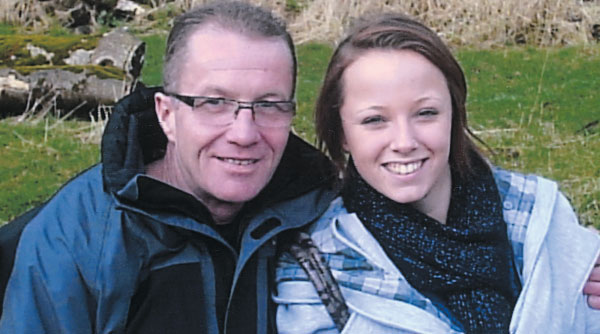
The picture in my hands was curled at the edges and faded, battered from all the times I’d looked at it.
Frozen in time were me and my dad Stuart. It was the only picture I had of us together, and every time I looked at it, I tried finding similarities between us.
There I was, aged three, on my first bike and Dad was smiling next to me. Did I have the same eyes? Would I be tall too? Did I have
his sense of humour?
I had no idea.
My mum and dad had split up when I was two, and I’d only seen him a handful of times over the years. Mum had given me all the love and attention I’d needed.
Only very occasionally, when friends had shown me something their dad had made for them, or told me about their weekend camping trips, had I ever felt jealous.
The only gift Dad had ever given me was a teddy bear, and
the last time I’d seen him was three years ago when he was on leave from the navy.
‘Chantelle, can you come downstairs please?’ Mum’s voice interrupted my thoughts. ‘You’ve got some post.’
Shoving the photo into my drawer, I leapt down the stairs.
I was 10, rarely got anything except statements from my junior saver account. Getting a letter was really exciting!
But, scurrying into the lounge, I clocked Mum’s worried face.
‘It’s from your dad’s solicitor,’ she sighed. ‘He wants to meet up.’
‘Why didn’t he just call?’ I asked.
‘No idea, but it sounds important,’
she shrugged.
A few days later, dressed in my Sunday best, we went to meet him at a cafe in town. I spotted him immediately, sitting alone, jiggling his leg nervously.
‘It’s good to see you,’ he said, but he didn’t smile.
‘What’s going on?’ Mum asked.
Dad took a deep breath.
‘I’m… I’m dying,’ he said.
What?! Mum looked at me, panic in her eyes.
‘I don’t think this…’ she
began, but I wanted to know what was going on.
‘What of?’ I asked.
Dad leaned forward. ‘I’ve got Huntington’s disease.’
After leaving the navy he’d got a job as a traffic officer, and they’d discovered he had the condition during his annual health check.
‘The thing is, it’s genetic Chantelle, which means you could have it,’ he added.
‘That’s enough!’ Mum hissed, grabbing my arm. ‘She’s 10!’
‘Please,’ Dad sighed, trying to give us a handful of leaflets.
But she threw them on the table, and pulled me away.
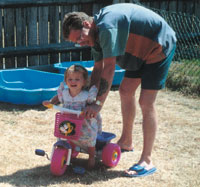
‘I can’t believe that man,’ she seethed to me on the way home. ‘Inviting us to a cafe
to tell us that.’
But all I could think about was Huntington’s. What was it? What did it mean?
Was I going to die?
Back home, while Mum was cooking my dinner of fish fingers and peas, I researched the condition on the internet.
‘A neurodegenerative genetic disease,’ I read, frowning.
I had no idea what that meant.
But the next line registered with me loud and clear…
Slowly impairs the sufferer’s ability to walk, talk and think. There is no known cure.
In a panic, I ran upstairs crying. Picking up the teddy from Dad, I threw it across the room. He’d given me another gift after all – a slow, painful death.
Of course I ended up telling my fears to Mum.
‘Don’t believe everything you read,’ she sighed. ‘Let’s go and speak to the doctor.’
A specialist confirmed it was all true, though.
There was a 50 per cent chance I had Huntington’s – and if I did I’d end up in a wheelchair, unable to remember my own name.
‘We can’t test you for it until you’re 18, though,’ the doctor said. ‘Enjoy your childhood, don’t worry about these things.’
Enjoy my childhood?!
‘I can’t relax until I know,’ I gasped. ‘I need that test.’
Despite Mum’s support, they refused. Over the next few years, I fought the decision. Went from specialist to specialist, was assessed by child psychologists, had counselling, all to prove I could cope with knowing my fate.
But all the time I told myself I’d be fine. Of all the things I could have inherited from Dad, this wouldn’t be one of them. Still, I deserved to know one way or another. When I was 13, they finally agreed to test me. Even then, the nurse did a double check.
‘Are you sure you want these results?’ she asked. ‘We could keep them on file for later.’
‘No, I want to know,’ I insisted.
The nurse opened the envelope and sighed heavily. ‘I’m sorry…’
It was positive.
I didn’t know what to feel, crumpled into Mum’s arms. I’d been so sure I’d be negative, that Dad didn’t know what he was talking about. How would I ever cope with this bombshell?
For over a year I went into my shell, couldn’t talk to anyone about how I was feeling.
But as my 15th birthday approached I joined a support group, began to meet others with my condition and realised I was one of the lucky ones. The symptoms wouldn’t set in until middle age, so finding out early meant I had time to achieve my dreams.
So, I had an idea.
‘I’ve written a list of the things I want to do before my symptoms set in,’ I told Mum.
‘Gliding, sky diving, going to college,’ she laughed. ‘I’m proud of you, love, proud this isn’t holding you back.’
There was one thing I still had to do, though. I hadn’t seen or spoken to Dad since that day, and needed him to know he’d hurt us.
I found him on Facebook, and sent him a message.
All the pain and rage I’d felt for years came pouring out.
You hurt me and Mum so much, you were never there for me and I hate you for that.
I wasn’t proud of what I said, but it needed saying. The next day I got a reply – I hadn’t expected that…
I’m so sorry, I never meant to hurt you. I didn’t deal with it well, but you needed to know.
Reading Dad’s message, I started crying. All these years I thought he was being spiteful, but he’d told me because he loved me.
A few weeks later, we agreed to meet. Turning up at that same café seven years on, I saw the same tall, nervous bloke sitting at the same table.
‘Dad?’ I smiled, and he got up and gave me a hug.
‘I’m sorry for everything,’ he said. ‘Not just the Huntington’s, but for not being there when you were a kid. Please forgive me.’
‘I don’t want to forgive you, I want to get to know you,’ I said, realising how hard this had been for Dad too.
Since then I’ve been to stay with him in Wales, we’ve met for lunch and even been camping. It’s like he’s giving me the childhood we didn’t have together.
Luckily his symptoms haven’t come on yet, but when they do, I’ll be there for him as he is for me now.
Chantelle Durnall, 17, Gosport, Hampshire
Story search...
Story archive
Just added...
From chunky to hunky
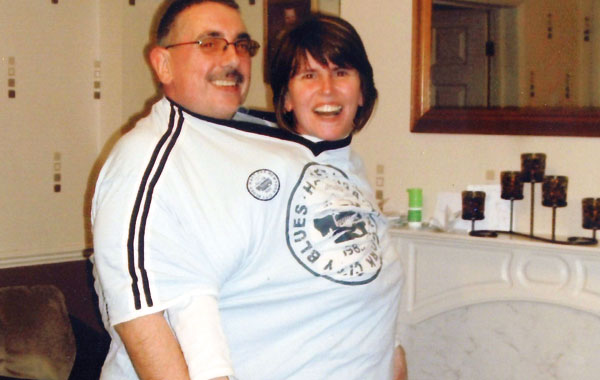
Cuddly Colin was too roly-poly to...
read more...
The boy of steel
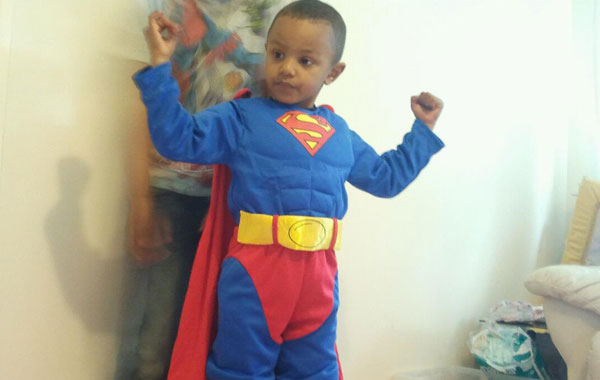
With his baby sister Holly to love,...
read more...
The great Moggy mystery
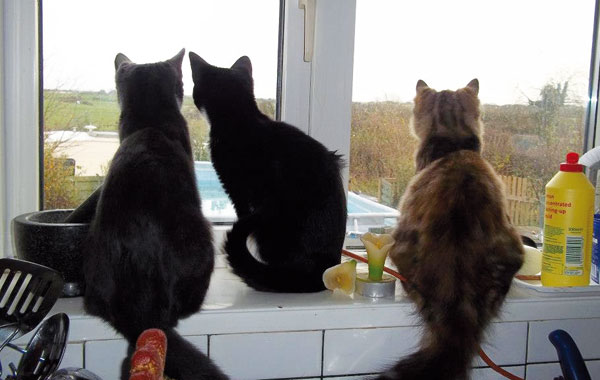
Just what was making all of our cats...
read more...
Most popular...
Quick reads...
No choccie, but life's so sweet!
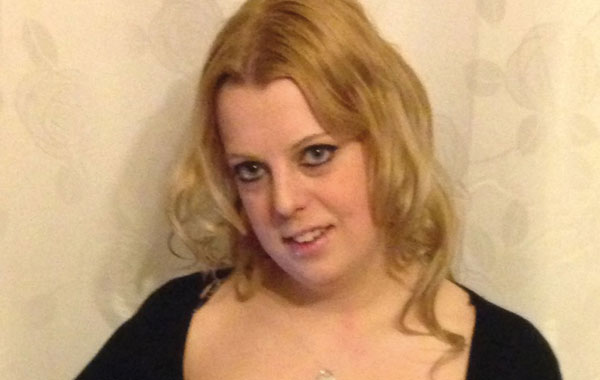
I'm a reformed chocoholic...
read more...
Baa-ck from the dead!

My heart bleated for these poor sheep...
read more...
Brave undertaking
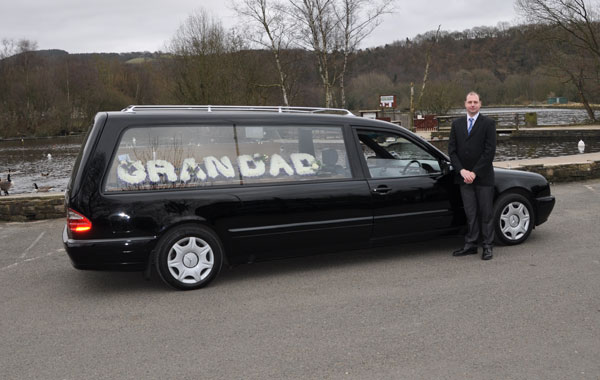
I've swapped cars for coffins...
read more...























